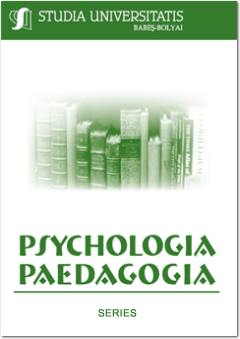Social and Psychological Correlates of the Major Sources of Discomfort Perceived by Students in the COVID-19 Pandemic: An Exploratory Study on a Romanian Sample
Social and Psychological Correlates of the Major Sources of Discomfort Perceived by Students in the COVID-19 Pandemic: An Exploratory Study on a Romanian Sample
Author(s): Éva Kállay, Sebastian PinteaSubject(s): Social Sciences, Education, Educational Psychology
Published by: Studia Universitatis Babes-Bolyai
Keywords: COVID-19 pandemic; psychological discomfort; vulnerabilities; students;
Summary/Abstract: The COVID-19 pandemic has a significant impact on the physical and psychological functioning of the entire world’s population. Our study has had three major aims: (1) to identify the major sources of discomfort related to COVID-19 pandemic in third year psychology students, (2) to establish a hierarchy of the major sources of discomfort, and (3) to identify possible vulnerabilities for different sources of discomfort. We used a cross-sectional study to explore more accurately the individual reactions and possible vulnerabilities, also including open-ended questions to explore perceived sources of discomfort. Our study included 289 third-year psychology students from Babeș-Bolyai University in Cluj-Napoca, Romania (M=24.39 years, SD=7.12). All participants were assessed regarding their levels of: depression, narcissistic traits, perfectionism, perceived stress, self-esteem, intolerance of uncertainty, subjective well‐being, and emotion regulation strategies. Our results indicate significant gender and age differences: male participants reported mobility restrictions as a source of discomfort more frequently than female participants, and younger students are less concerned with restrictions regarding social relations, while older students report less emotional problems and less concern with educational problems. Students living in urban areas report less emotional problems than students from rural areas. The results generated by our research point out certain social and psychological vulnerabilities for each perceived source of discomfort (emotion-regulation strategies, perfectionism, narcissism), can bring a valuable input in counselling and therapy for individuals who are maximally affected by the pandemic of COVID-19.
Journal: Studia Universitatis Babes-Bolyai - Psychologia-Paedagogia
- Issue Year: 66/2021
- Issue No: 2
- Page Range: 5-38
- Page Count: 35
- Language: English

